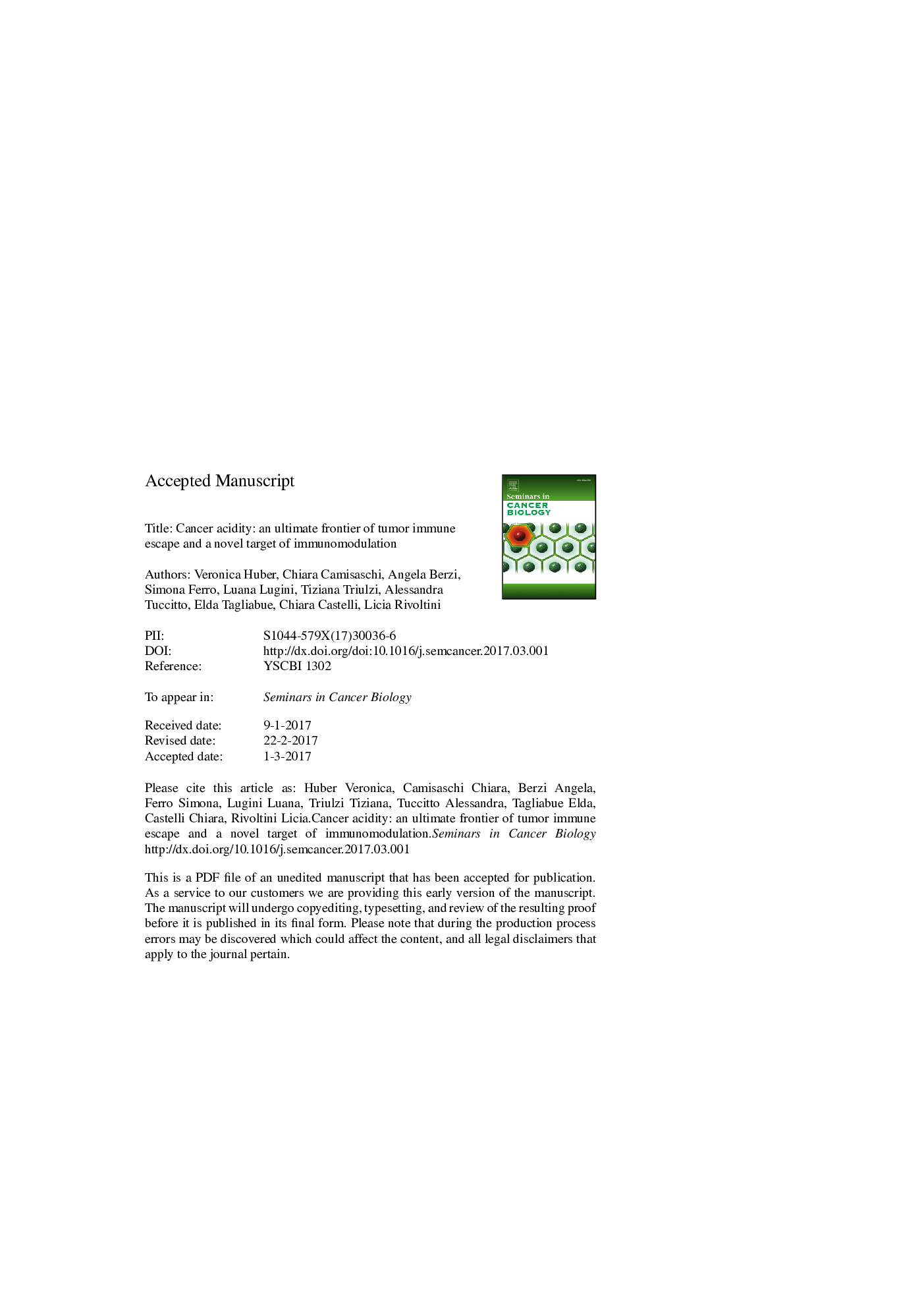| Article ID | Journal | Published Year | Pages | File Type |
|---|---|---|---|---|
| 8361939 | Seminars in Cancer Biology | 2017 | 39 Pages |
Abstract
The link between cancer metabolism and immunosuppression, inflammation and immune escape has generated major interest in investigating the effects of low pH on tumor immunity. Indeed, microenvironmental acidity may differentially impact on diverse components of tumor immune surveillance, eventually contributing to immune escape and cancer progression. Although the molecular pathways underlying acidity-related immune dysfunctions are just emerging, initial evidence indicates that antitumor effectors such as T and NK cells tend to lose their function and undergo a state of mostly reversible anergy followed by apoptosis, when exposed to low pH environment. At opposite, immunosuppressive components such as myeloid cells and regulatory T cells are engaged by tumor acidity to sustain tumor growth while blocking antitumor immune responses. Local acidity could also profoundly influence bioactivity and distribution of antibodies, thus potentially interfering with the clinical efficacy of therapeutic antibodies including immune checkpoint inhibitors. Hence tumor acidity is a central regulator of cancer immunity that orchestrates both local and systemic immunosuppression and that may offer a broad panel of therapeutic targets. This review outlines the fundamental pathways of acidity-driven immune dysfunctions and sheds light on the potential strategies that could be envisaged to potentiate immune-mediated tumor control in cancer patients.
Keywords
CTLCCLGPCRMCTTANmAbsMDSCTCrPPIC-C motif chemokine ligandnatural killerG-protein-coupled receptorsFatty acid oxidationinterleukinICITAMDendritic cellmyeloid-derived suppressor cellFAOcytotoxic T lymphocyteTumor-associated macrophagebone marrowImmune checkpoint inhibitorProton pump inhibitormonocarboxylate transporterMonoclonal antibodiesAntibodyCarbonic anhydraseT cell receptor
Related Topics
Life Sciences
Biochemistry, Genetics and Molecular Biology
Biochemistry
Authors
Veronica Huber, Chiara Camisaschi, Angela Berzi, Simona Ferro, Luana Lugini, Tiziana Triulzi, Alessandra Tuccitto, Elda Tagliabue, Chiara Castelli, Licia Rivoltini,
